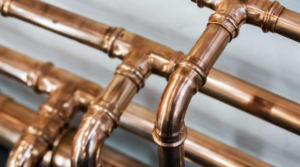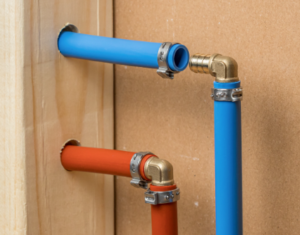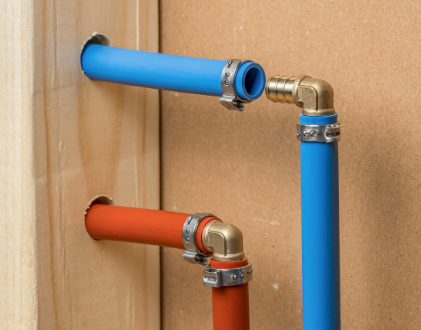There are several different piping materials to choose from when installing pipes for residential spaces. Each has its own uses and benefits so it’s important to consider the options available and when they will serve you best. Let’s take a look at some of these options.

Copper Pipes
Pipes and copper pipe connectors offered by specialist providers such as https://watkinspowis.co.uk/products/copper-pipe-fittings-and-press-systems/ are a popular solution due to the corrosion resistance and reliability on offer. They are designed for use in residential areas and are easy to cut.
Rigid copper is often used for longer supply runs, while flexible copper piping is perfect for shorter runs and supplying the likes of refrigerators and dishwashers. Copper piping can also be used for gas. Read about the benefits of copper piping on the Copper Development Association website here.
PEX Pipes
These are also called cross-linked polyethylene pipes and are a fairly recent addition to the market. These pipes are highly flexible, being capable of bending up to 90 degrees, making them perfect for weaving through the likes of basements, ceilings, and walls.

LLDPE Pipes
Linear low-density polyethylene is another common choice of plastic pipe. These are ideal for cold water systems and intermittent hot water systems and are designed to be used with standard fittings. They are perfect for connecting drinking water systems at the point of use.
Flexi Hoses
These are normally made with white PVC or braided material and are designed to be installed around any existing obstacles or pipework. This can be done without compromising on connections and their easy installation can take around 40 per cent less time than other choices.
Pipe in Pipe
This solution involves pre-sleeved pipes which are already set in the conduit and can be laid within masonry and concrete.

